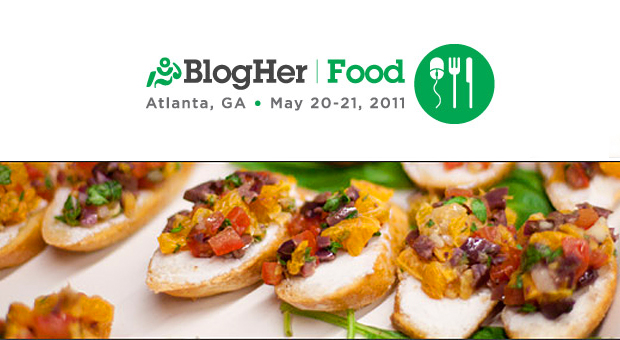This weekend I attended the BlogHer Food conference in Atlanta. I came to the conference to learn more from about food blogging from the agency-side and from a blogger’s perspective, as I write my own food blog. It was a breath of fresh air to step away from the agency side of things and meet […]
This weekend I attended the BlogHer Food conference in Atlanta. I came to the conference to learn more from about food blogging from the agency-side and from a blogger’s perspective, as I write my own food blog. It was a breath of fresh air to step away from the agency side of things and meet with other bloggers to discuss food, recipes and techniques, as well as building a network of friends. I told a couple of colleagues that this conference felt more like a community than a place to network and find leads.
BlogHer Food had various sessions covering topics including recipe writing, social media, branding and search engine optimization. Here are my takeaways from the two-day event:
General Food Writing
- Write from the heart. Readers like authenticity. Think of your readers and you will always make the right decision.
- According to Amelia Pane Schaffner (@ZTastyLife), when writing a restaurant review,”It’s good to have a balance; excessive ranting is bad. There must be something positive about a restaurant.”
- Donna Pierce of @BlackAmerCooks advises food bloggers to be honest and write negative reviews about restaurants.
Recipe Writing
- Food blogging is not repurposing someone else’s work.
- When adapting recipes, ask for permission from the author/creator of the original recipe.
- Useful sites to read for info on ethics and copyrighting : www.blogwithintegrity.com and foodethics.wordpress.com
Social Media
- Use social media to promote your brand.
- Use the different social media channels effectively.
- Mrs. Q (@fedupwithlunch): “The power of #socialmedia: you can reach so many, [and more] when you use a hashtag.”
- Facebook is for conversations.
- Twitter is for nuggets of information.
- Be careful when using social media. According to cookbook author David Leite (@davidleite), “It can take years to build a reputation, but it can take two tweets to lose it.”
Search Engine Optimization
This SEO session offered great tips on how to optimize recipes without sounding like a robot.
- Have keyword phrases and voice – these are the two most important things about blogging. Write like you are going to write normally and keep your keyword phrase(s) in mind. It will come to you organically.
- Want to be seen in Google ? Use Google Rich Snippets, or hrecipe.
- Content is king, but structure is queen. All recipes should follow the same structure.
- Recipe Title
- Ingredients
- Directions or Instructions or Method
- Name your photos. An example they used is ‘Braised-Lamb-Shank.jpg’.
- Optimize your website for mobile using HTML5.
- If your blog runs on WordPress, utilize the following plugins:
- HRecipe
- EasyRecipe
- RecipeSEO
- If you use Blogger (like me – deecuisine.com), you can optimize your content manually with the HTML editor by effectively using:
- unordered lists <ul> to list Ingredients
- ordered lists <ol> to list Instructions
- Again, structure is important. It may seem daunting the first time, but after a few blog posts, you’ll get the hang of it.
The closing keynote was inspirational, motivating, and the perfect way to end a conference with these key takeaways, which can be applied to anything beyond a food blog:
- Quality is everything and can sell itself. Having quality content will allow you to make a name for yourself.
- Stop giving away your value so cheaply.
- Think outside the laptop! If you want to be a brand, consider modifying your website to be readable beyond the laptop; use HTML5 so your website is readable on mobile devices.
My favorite quote from the BlogHer Food conference comes from David Leite. “You [food bloggers] are some of the most powerful people in media right now. The first time a blogger posted a recipe from my site I flew into a fury. I wanted to bring out the lawyers I was told very quietly by my publisher — don’t annoy the bloggers. They are too important. But don’t abuse your power. You can use it for good or you can use for evil. You can be seen as great, or you can be seen as skanks.”
